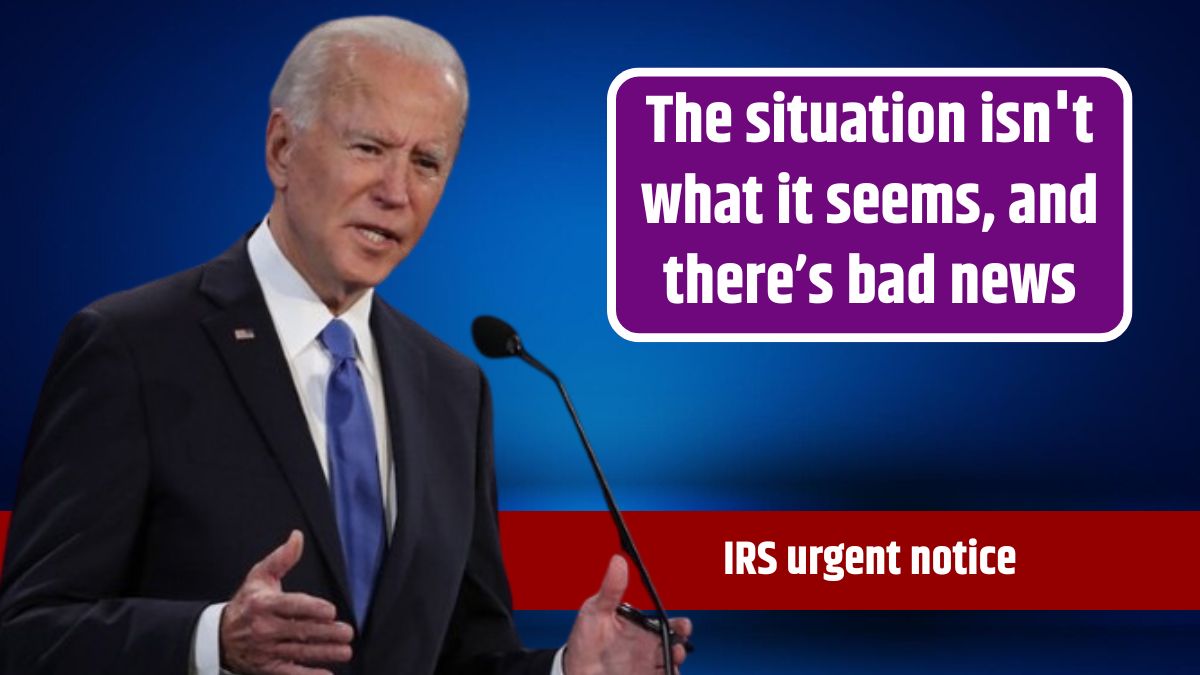Rumors have been swirling recently about a supposed new $2,600 stimulus check for senior citizens, causing confusion and raising false hopes among many Americans. However, the Internal Revenue Service (IRS) and other reliable sources have firmly debunked these claims, labeling them as fake news. In an age where misinformation spreads rapidly, it’s crucial to separate fact from fiction, especially when it comes to financial matters.
Fake News
The rumor of a $2,600 stimulus payment specifically for seniors gained traction through social media platforms like Facebook and X (formerly Twitter). The fake reports claimed that the IRS was issuing direct deposits to individuals over 65, as well as those with disabilities or who are blind. These fabricated stories were detailed and presented in a way that made them seem credible, leading many to believe they were true.
The misinformation spread quickly, fueled by the rising cost of living and the economic uncertainty that has left many seniors eager for financial assistance. According to the fake news, to qualify for the payment, individuals had to have filed their annual tax returns, earned a gross annual income of $75,000 or less, and be eligible for federal Social Security benefits. These specific details further lent an air of legitimacy to the claims, making it harder for people to recognize the deception.
Official Responses
In response to the widespread confusion, the IRS and the American Association of Retired Persons (AARP) have issued statements to set the record straight. Anthony Burke, a representative of the IRS, made it clear that all Economic Impact Payments (the official term for stimulus checks) have already been issued. He emphasized that any news suggesting otherwise is false and urged the public to rely on official channels for accurate information.
McKenzie Sadeghi, an AI specialist for the AARP, also addressed the issue, pointing out that such hoaxes are often designed to generate clicks or drive traffic to deceptive websites. Both the IRS and AARP have encouraged people to remain vigilant and avoid being misled by viral misinformation. They advise the public to consult the official IRS website and other trusted sources for updates on financial matters.
Avoiding Misinformation
In an era where misinformation can spread like wildfire, it’s essential to develop strategies for identifying and avoiding fake news. Here are some tips to help you stay informed and avoid falling for false claims:
- Verify Information: Always check the facts from official sources, such as the IRS website or other government agencies.
- Cross-Check News: Compare the information you receive with reports from multiple reputable sources to ensure its accuracy.
- Question Incredible Claims: Be skeptical of news that seems too good to be true, as it often is.
- Assess the Source: Consider the credibility of the source. Is it a well-known and trusted organization, or a random post on social media?
It’s also important to remember that the IRS stopped issuing COVID-19-related stimulus payments in 2021. Given this fact, any news of a new pandemic-related stimulus payment should raise red flags. By being aware of these details, citizens can protect themselves from being duped by fake news and avoid making financial decisions based on false information.
The recent rumor of a $2,600 stimulus check for seniors is a prime example of how quickly misinformation can spread and the importance of critical thinking in today’s digital age. While such news may initially create hope, it can also lead to disappointment and poor financial choices if not properly vetted.
To safeguard against the negative effects of fake news, it’s crucial to follow official sources, question the validity of the information you encounter, and resist the urge to accept the first piece of news as truth. By doing so, we can protect ourselves and others from the pitfalls of misinformation and maintain trust in our government and official news sources.
FAQs
Is the $2,600 stimulus check for seniors real?
No, it is a fake news story that has been debunked by the IRS.
How can I verify news about government payments?
Check the official IRS website or other reputable sources.
Why do fake news stories spread so quickly?
They often include detailed, plausible information that misleads people.
What should I do if I see a suspicious news story?
Cross-check it with trusted news outlets and official sources.
When did the IRS stop issuing COVID-19 stimulus payments?
The IRS stopped issuing these payments in 2021.
